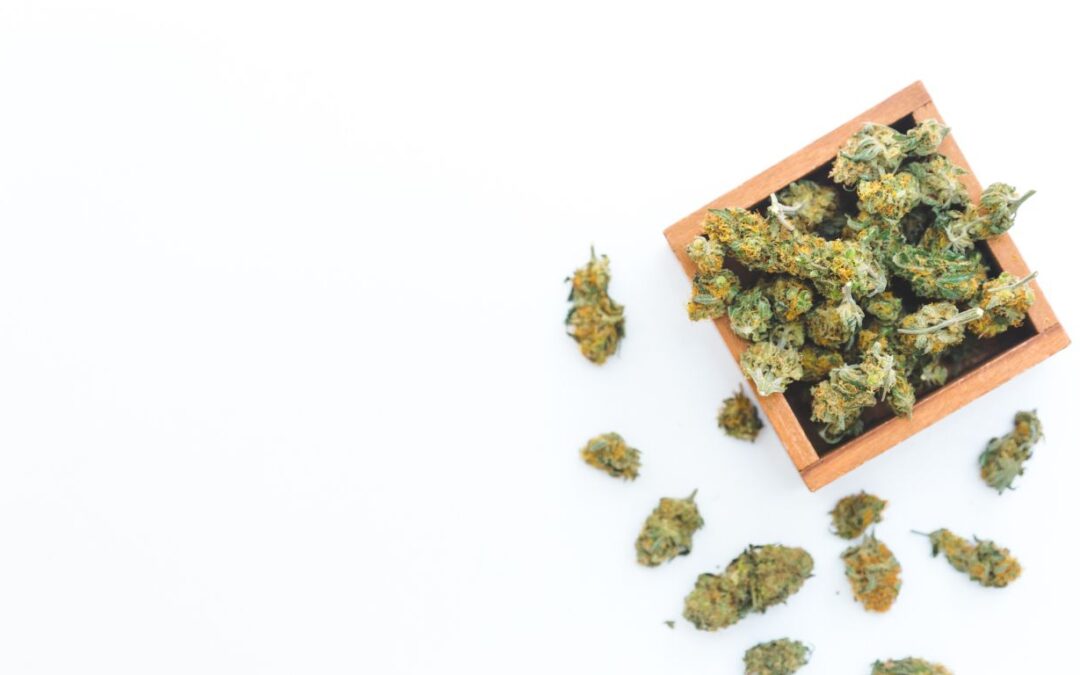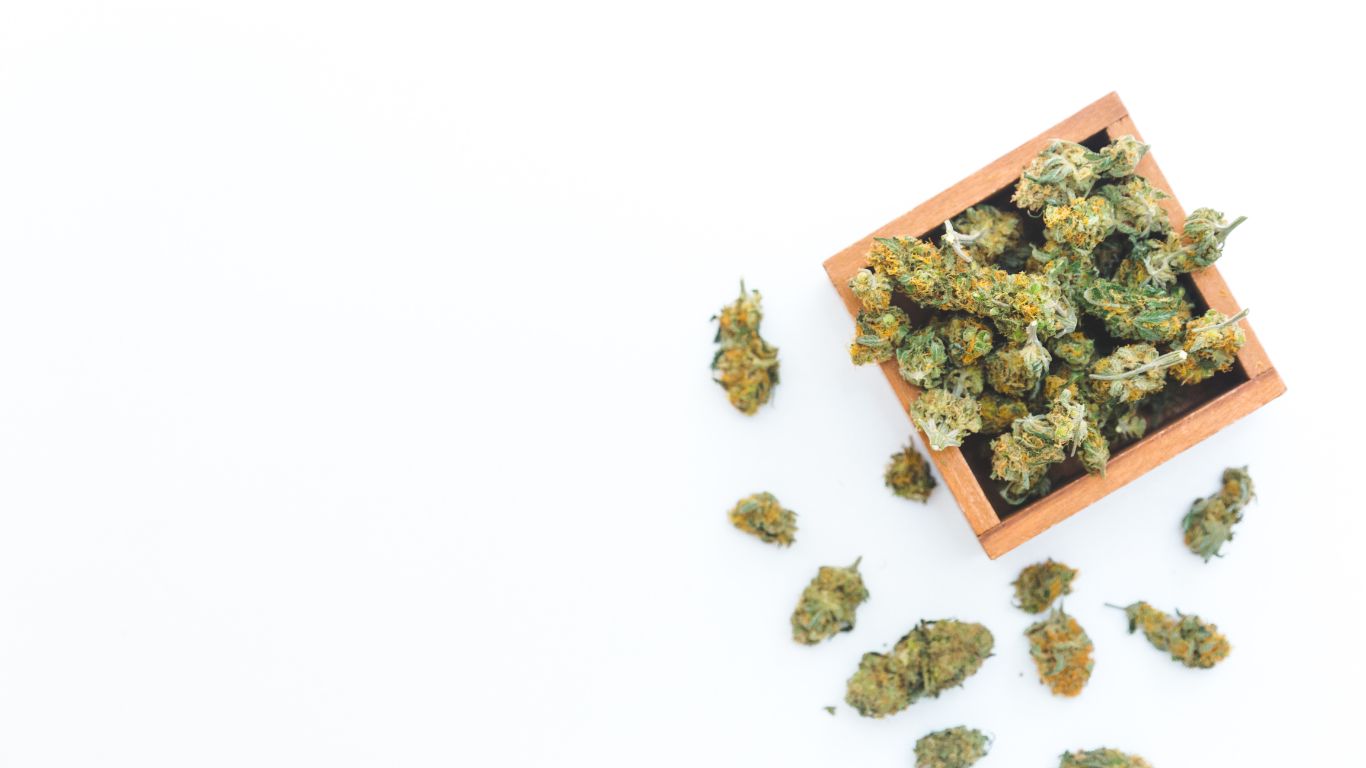
by Grow Up Conference | Jan 7, 2025 | Grow Opportunity, Media Partners
(GLOBE NEWSWIRE) Toronto – Tilray Brands, Inc., a global lifestyle and consumer goods company, offers a wide range of innovative and refreshing cannabis beverages for every taste, perfect for any occasion. Consumers are invited to explore the Solei, Mollo, and XMG cannabis brands in Canada for a variety of cannabinoid offerings and flavours, catering to different lifestyles.
Tilray Brands is leading the way in the cannabis beverage market in Canada, offering an extensive portfolio of brands and products to meet the diverse preferences of consumers. From refreshing fruit-based beverages to classic cream sodas with delicious flavours, Tilray Brands ensures there is something for everyone in their versatile brands and THC beverages.
Mollo Seltzers
Mollo Seltzers offers a range of refreshing and delicious seltzer flavours that are perfect for those looking to expand their current go-to list:
- Blackberry: Meant for sipping back and unwinding, Mollo’s Blackberry Seltzer is loaded with sweet and tart ripe berry flavours, with 10mg of nano-emulsified THC and 20mg of CBG per 355mL can.
- *NEW* Wildberry Acai: Coming Soon!
- *NEW* Watermelon Lime: Coming Soon!
Solei Sparkling Beverages and Teas
Solei sparkling beverages are a great way to experiment with mocktail options whether you’re unwinding after a long day, adding a little something special to go along with a mid-day pick-me-up, or serving up some infused options for your next social gathering.
- Blood Orange: Invigorating citrus in a can with mild sweetness and tart, floral flavours, with 5mg THC, 10mg CBG.
- Dark Cherry: Complex dark cherry flavours with just the right amount of sweetness featuring 5mg THC, 10mg CBD.
- Dragonfruit Watermelon: A perfectly blended and mildly sweet dragonfruit and juicy watermelon fusion with a low dose of 1.1mg THC, 25mg CBD.
- Mango Passionfruit: A sweet, tropical blend of mango and passionfruit, mixed in perfect harmony featuring a low dose of 1.1mg THC, 25mg CBD.
For those looking for a carbonation-free option, Solei’s Cold Brew Teas are made using a black tea base blended with real fruit juice in 355mL cans and come in two unique and invigorating flavours at 5mg THC and 10mg CBG:
- Peach Cranberry: Refreshing peach and cranberry blended with cold brew tea
- Wildberry Hibiscus: Juicy wild berries and hibiscus blended with cold-brew tea
XMG Sodas
XMG’s sodas offer a series of bubbly beverages with nostalgic flavours that deliver peak refreshment, with cannabinoid variations that provide the ultimate chill:
XMG+:
- Blackberry Lemonade: Very berry refreshment mingles with bold tartness in XMG+ Blackberry Lemonade. You’ll be sipping on sunshine with real lemon and blackberry fruit juices infused with nano-emulsified 10mg THC, 10mg CBG and <30mg caffeine from guarana extract.
- Iced Rocket Berry: Ignite your tastebuds with an ice-cold blast of berry and lime featuring 10mg THC and 10mg CBG, including guarana extract in a 355mL can.
XMG Zero (10mg THC each):
- Cream Soda Zero: Enjoy every sip with this dreamy blend of vanilla and caramel flavours with 10mg THC and 0 calories
- Cherry Cola Zero: Cherry Cola Zero comes with all-natural flavours and a rollercoaster of classic cherry cola vibes with 10mg THC and 0 calories
- Orange Soda Zero: Bold, citrus satisfaction in a can, this one’s sure to take you back to the good old days with a side of 10mg THC and 0 calories.
Mollo Seltzers, Solei CBD and CBG Beverages, and XMG Sodas are perfect for anyone seeking innovative, non-traditional alternatives to celebrating life’s moments. These products are available nationwide across Canada at select local retail stores and online. For more information on Solei, Mollo and XMG brands, visit Tilray.com.
About Tilray Brands
Tilray Brands, Inc. is a leading global lifestyle and consumer packaged goods company with operations in Canada, the United States, Europe, Australia, and Latin America that is leading as a transformative force at the nexus of cannabis, beverage, wellness, and entertainment, elevating lives through moments of connection. Tilray’s mission is to be a leading premium lifestyle company with a house of brands and innovative products that inspire joy, wellness and create memorable experiences. Tilray’s unprecedented platform supports over 40 brands in over 20 countries, including comprehensive cannabis offerings, hemp-based foods, and craft beverages.
Print this page

by Grow Up Conference | Jan 6, 2025 | Media Partners, The New Agora
Unleashing the Power of Agorism:
A New Way Forward for Economic Freedom
As we navigate through these uncertain times, it becomes increasingly clear that traditional institutions and systems have failed us time and again. The global economy is rigged against the average person, leaving many feeling powerless and disenfranchised. But what if there was a way to take control of our economic lives, to build alternative structures outside of the state and corporations? Enter agorism – a revolutionary philosophy that offers a new pathway towards freedom and prosperity.
Agorism, coined by philosopher Samuel Edward Konkin III, is a political ideology that advocates for counter-economics – the production, distribution, and exchange of goods and services outside of the State’s coercive control. It encourages individuals to opt out of the formal economy and instead engage in voluntary, mutualistic transactions within autonomous communities, known as Agoras.
The core principle behind agorism is the belief that peaceful, voluntary interactions between consenting adults should not be subjected to force or coercion from external entities. This includes taxes, regulations, and other forms of government intervention. By creating a decentralized network of self-governing markets, agorists aim to undermine the legitimacy of the state’s monopoly over commerce and ultimately bring about its collapse.
But agorism isn’t just about resistance; it also provides positive solutions for building resilient, thriving communities. In the context of agorism, businesses operate under the principles of mutualism, where both producers and consumers benefit equally. This fosters trust, cooperation, and innovation, leading to better products and services for everyone involved. Furthermore, agorism emphasizes the importance of education and personal responsibility, empowering individuals to become self-reliant and contribute meaningfully to their communities.
So how do we begin living an agoristic lifestyle? Here are some practical steps to get started:
- Identify like-minded people: Seek out others in your community who share similar values and beliefs. Join local organizations, attend events, and participate in online forums dedicated to agorism and counter-economic activities.
- Build relationships: Cultivate strong bonds with those around you. Engage in regular trade, barter, or gift economies whenever possible. Remember, trust is essential when forming a robust agora.
- Learn new skills: Expand your knowledge base and develop expertise in areas that will make you more valuable to your community. This could include anything from gardening and cooking to coding and engineering.
- Decentralize your life: Reduce reliance on large institutions such as banks, governments, and corporations. Explore alternatives like local currencies, peer-to-peer lending networks, and cooperative ventures.
- Stay informed: Keep up-to-date with current events, trends, and innovations related to agorism and counter-economics. Educating yourself will enable you to make informed decisions and adapt to changing circumstances.
- Be creative and innovative: Embrace the spirit of experimentation and find ways to apply agoristic principles to various aspects of your life. Whether it’s starting a community garden or launching a local barter network, every small step brings us closer to a freer world.
- Live ethically: Adhere to a code of conduct grounded in honesty, respect, and non-aggression. Your actions set an example for others and strengthen the foundation upon which your agora is built.
- Support agoristic projects: Contribute resources, time, or expertise to initiatives that further the goals of agorism and the development of alternative economic structures.
- Spread awareness: Share your experiences, insights, and knowledge with others. Encourage open dialogue and collaboration among members of your agora and beyond.
In conclusion, embracing agorism means taking charge of our own destinies and working together to build a world based on voluntary interaction, mutual aid, and individual liberty. While the journey won’t be easy, the rewards are immeasurable. As we continue to face challenges from the ever-expanding reach of the State and corporate domination, the potential benefits of this radical yet simple idea become all the more compelling. So join me, dear reader, in exploring the vast possibilities offered by agorism and let us reclaim our rightful place as masters of our own lives. Together, we shall create a brighter future, one transaction at a time.
Remember, change begins with each one of us. Let us embrace the power of agorism and unite in our pursuit of a truly free society!


by Grow Up Conference | Jan 6, 2025 | Cannabis News Wire, Media Partners
The year 2024 began with high hopes for the end of marijuana prohibition in the United States. However, as the year winds down, many of those expectations remain unmet.
“The main issue is reclassification,” stated Alex Halperin, a journalist covering the marijuana industry since 2015 through his newsletter WeedWeek. Rescheduling would remove marijuana from the list of substances federally prohibited under the Controlled Substances Act (CSA).
President Joe Biden had pledged to reform federal marijuana policy during his 2020 presidential campaign, with rescheduling appearing to be the most likely significant step. However, recent developments suggest this change might not occur during his presidency—or at all.
In January, the HHS issued a scientific review recommending marijuana be reclassified from a Schedule 1 to a Schedule 3 substance. This shift would allow marijuana-based medications to gain FDA approval. Acting on this recommendation, the DEA introduced a proposal for rescheduling and opened the matter to public comments in May. Out of over 40,000 responses, 69% favored federal legalization or decriminalization.
Despite this, progress has slowed. Shortly after the public comment period ended, the DEA announced a December hearing to discuss rescheduling. However, the hearing was downgraded to a preliminary discussion and postponed to 2025, further extending the process.
This year’s presidential campaign offered mixed feelings for marijuana advocates. For the first time, both Republican and Democratic candidates expressed support for reform. Vice President Kamala Harris pushed for federal legalization, while Donald Trump endorsed a Florida initiative to legalize adult-use marijuana. Yet these positions have not translated into actionable progress.
Ballot initiatives to legalize recreational marijuana in South Dakota and Florida were rejected, marking the first year since 2017 without new states adopting legalization. Nebraska, however, approved medical marijuana.
Halperin remarked that predicting federal reform under Trump’s administration remains challenging as Republican lawmakers largely oppose legalization, even though younger Republican voters increasingly support it.
While legislative efforts stagnated, parts of the industry saw growth. Delaware and Ohio issued their first licenses for recreational dispensaries after legalization in 2023. Consumption lounges have also gained approval in various regions.
However, concerns over product safety have escalated. In one of his articles, Halperin highlighted the presence of pesticides in regulated marijuana products in California. The exposé spurred further reports on contamination in both marijuana and hemp products, the latter being less regulated and often sold without age restrictions.
In response to growing alarm, the California governor temporarily banned intoxicating hemp goods in September, while New Jersey lawmakers attempted to regulate the market through licensing. However, these measures face legal challenges, further delaying reforms. Meanwhile, federal bills like the SAFE Banking Act, which aimed at improving financial access for marijuana businesses, have also stalled in Congress.
A lot is riding on the policy actions that the incoming administration opts to implement, and those policies could also indirectly affect ancillary firms like Innovative Industrial Properties Inc. (NYSE: IIPR) that serve marijuana plant-touching businesses in different jurisdictions.
About CNW420
CNW420 spotlights the latest developments in the rapidly evolving cannabis industry through the release of an article each business day at 4:20 p.m. Eastern – a tribute to the time synonymous with cannabis culture. The concise, informative content serves as a gateway for investors interested in the legalized cannabis sector and provides updates on how regulatory developments may impact financial markets. If marijuana and the burgeoning industry surrounding it are on your radar, CNW420 is for you! Check back daily to stay up-to-date on the latest milestones in the fast -changing world of cannabis.
To receive SMS alerts from CNW, text CANNABIS to 888-902-4192 (U.S. Mobile Phones Only)
For more information, please visit https://www.CannabisNewsWire.com
Please see full terms of use and disclaimers on the CannabisNewsWire website applicable to all content provided by CNW, wherever published or re-published: https://www.CannabisNewsWire.com/Disclaimer
CannabisNewsWire
Denver, CO
www.CannabisNewsWire.com
303.498.7722 Office
Editor@CannabisNewsWire.com
CannabisNewsWire is powered by IBN

by Grow Up Conference | Jan 6, 2025 | Media Partners, Stratcann
Tilray Medical, a division of Tilray Brands, Inc., announced on January 6 that its German subsidiary, Tilray Deutschland GmbH, has secured a tender to supply Luxembourg with its cannabis flower.
“We are honored to have been selected again to supply medical cannabis to Luxembourg,” said Denise Faltischek, CSO at Tilray and Head of International at Tilray Brands, in a company press release. “This is a testament to the unwavering dedication of our team in providing patients around the world with high-quality medical cannabis products.”
Luxembourg’s Ministry of Health and Social Security has authorized qualified health professionals to prescribe medical cannabis as a treatment option since February 2019. In a post on its website, the agency says that as of January 1, 2025, THC-rich flowering tops will no longer be available, but patients will still have access to CBD-rich cannabis flower and “balanced” THC and CBD flower, along with cannabis oil.
Access to these products has been increasing since the program was introduced. There were 18 bottles of cannabis oil prescribed in 2022, 2,043 bottles in 2023, and 2,850 since January 2024, which has also contributed to the adjustment of the program. The population of Luxemburg is around 675,000 people.
In October 2024, the city released tenders for cannabis oil (“THC dominant”, “CBD dominant” and “THC/CBD balanced”) and medicinal cannabis in the form of dried flowering tops (“CBD dominant” and “THC/CBD balanced”.)
In November 2024, Tilray Medical launched its first commercial-grown medical cannabis flowers from its Aphria RX GmbH facility in Germany.
Tilray received the first cannabis cultivation licence issued under Germany’s new Cannabis Act in July 2024. This licence allows Aphria RX to cultivate and manufacture cannabis for medical purposes in Germany.
The cannabis company, which operates in Canada, the United States, Europe, Australia, and Latin America, was the first to receive a cannabis production licence in the country. Canadian cannabis company Aurora and the German company Demecan are also now licensed for production in the country.
In February 2024, Germany passed the German Medical Cannabis Act, expanding the country’s medical cannabis laws.
Aphria RX has been present in the medical cannabis space in Germany since March 2019, when the company was awarded a licence for the cultivation of medical cannabis in Germany from the German Federal Institute for Drugs and Medical Devices (the “BfArM”).
Any company that wishes to cultivate, produce, trade, import, export, dispense, sell, otherwise place on the market, obtain or acquire cannabis for medicinal purposes or cannabis for medical-scientific purposes in Germany requires a permit from the German Federal Institute for Drugs and Medical Devices.
Tilray’s Q2 financial results are expected January 10. Tilray Brands, Inc. brought in $200 million in net revenue and gross profit of $59.7 million in the first quarter of 2025 but still saw a net loss of $34.7 million (all figures in US dollars).
Related Articles

by Grow Up Conference | Jan 6, 2025 | Media Partners, Psychedelic News Wire
The psychedelics industry experienced various peaks and pits at both the state and federal levels in 2024. Below, we look at some of the top moments of the year.
- Department of Veterans Affairs to fund psychedelic research for veterans
Last month, the department announced that it’d allocate $1.5 million to research the effectiveness of MDMA-assisted therapy for alcohol use disorder and post-traumatic stress disorder.
This psychedelic study, the first to be funded by a federal agency since the 60s, will be conducted at West Haven VA Medical Center and Providence VA Medical Center by VA researchers affiliated with Yale University and Brown University. Enrollment is set to start this year.
- DEA renewed efforts to ban certain psychedelic compounds
The agency proposed the placement of 2,5-dimethoxy-4-chloroamphetamine (DOC) and 2,5-dimethoxy-4-iodoamphetamine (DOI) under Schedule I of the Controlled Substances Act.
This decision came amidst pushback from researchers that the classification would disrupt studies on the therapeutic potential of these compounds.
- Lykos Therapeutics’ application for MDMA therapy approval rejected
An FDA advisory panel rejected a proposal that would’ve allowed MDMA-assisted therapy to be used to treat post-traumatic stress disorder. The panel cited issues with the company’s phase III trials as the basis for rejection, advising that Lykos conduct additional trials providing additional evidence of the therapy’s safety and effectiveness.
This is despite the fact that some Congress members sent letters to relevant authorities urging that they consider approving the treatment. In turn, Lykos let go of 75% of its workforce to help advance research efforts.
- Green light for psychedelic therapy pilot program in Utah
The governor of Utah allowed the passage of a measure that’d allow hospitals in the state to administer MDMA and psilocybin as an alternative therapy option under a pilot program.
- Colorado adopted regulations for new psychedelics law
The departments of revenue and regulatory agencies in the state adopted regulations to aid in the implementation of a psychedelics legalization law approved by voters. The regulations cover standards of practice, training and qualification, and the licensing of facilitators, among other things.
- Voters in Massachusetts rejected ballot measure to legalize psychedelics
The voters rejected an initiative that would’ve permitted individuals aged 21 and above to legally cultivate, possess, and share amounts of psychedelics like DMT, ibogaine, and psilocybin. The proposed possession limits under the initiative were 1g each for psilocin and psilocybin, 1g for DMT, 30g for ibogaine, and 18g for non-peyote mescaline.
- Nevada government task force recommends psychedelic decriminalization
The task force recommended that legislators reduce legal penalties for psychedelics and establish a program for regulated psychedelic-therapy access. In its report, the task force highlighted that research had shown that treatment with psychedelics like psilocybin, ibogaine, and DMT could improve mental health disorders.
The above are a few of the many developments that occurred in this growing space. With more studies being conducted by firms like Mind Medicine Inc. (NASDAQ: MNMD) (NEO: MMED) (DE: MMQ) and the academia, researchers expect more benefits of psychedelics to be unearthed.
About PsychedelicNewsWire
PsychedelicNewsWire (“PNW”) is a specialized communications platform with a focus on all aspects of psychedelics and the latest developments and advances in the psychedelics sector. It is one of 60+ brands within the Dynamic Brand Portfolio @ IBN that delivers: (1) access to a vast network of wire solutions via InvestorWire to efficiently and effectively reach a myriad of target markets, demographics and diverse industries; (2) article and editorial syndication to 5,000+ outlets; (3) enhanced press release enhancement to ensure maximum impact; (4) social media distribution via IBN to millions of social media followers; and (5) a full array of tailored corporate communications solutions. With broad reach and a seasoned team of contributing journalists and writers, PNW is uniquely positioned to best serve private and public companies that want to reach a wide audience of investors, influencers, consumers, journalists and the general public. By cutting through the overload of information in today’s market, PNW brings its clients unparalleled recognition and brand awareness. PNW is where breaking news, insightful content and actionable information converge.
To receive SMS alerts from PsychedelicNewsWire, text “Groovy” to 888-902-4192 (U.S. Mobile Phones Only)
For more information, please visit https://www.PsychedelicNewsWire.com
Please see full terms of use and disclaimers on the PsychedelicNewsWire website applicable to all content provided by PNW, wherever published or re-published: https://www.PsychedelicNewsWire.com/Disclaimer
PsychedelicNewsWire
San Francisco, CA
www.PsychedelicNewsWire.com
415.949.5050 Office
Editor@PsychedelicNewsWire.com
PsychedelicNewsWire is powered by IBN

by Grow Up Conference | Jan 5, 2025 | Media Partners, The New Agora
Sex, Truth, and Masculinity Part II
By Robert Cinque
Read Part I here,
Before time and space there was Truth and Beauty.
Truth says, I love you so much. You are perfect just as you are. Don’t change a thing.
Beauty says I love you, too, and I’ll change if I want to.
But I love you just the way you are. Look at me, I never change.
That’s you. I’m me. I like new things.
But you don’t need them.
I determine what I need, not you.
But I am Truth. I know best.
And I am Beauty, so take a rest.
I am Truth. What I say goes.
And I am Beauty, thorn and rose.
Truth: You must obey the Truth.
Beauty: f*** off. You don’t own me.
She is dark, stormy and stubborn. She digs in and resists all forms of tyranny. No one is going to rule over her. Beauty goes where her heart leads, and where it is safe to be completely at ease. She follows what inspires and illuminates her, is scornful of mediocrity, and cannot tolerate boredom for long. She tries to hide these things to be polite but she is dark and she loves the light.
Since Truth could not control her he resorted to power over her. This was a betrayal of his love for her; she wanted Truth to lead, not control. Beauty took revenge; she withdrew and became ugly. Love was lost. Truth shriveled into a lie, seeking power and domination instead.
Truth could have left Beauty unmolested and trusted her wildness. But Truth feared the wild. Instead of facing his fear and powerlessness, and what he could not control, he also took revenge. He hired a bunch of metaphysical thugs and ecclesiastical goons to trample over Beauty and throw her into the dungeon of his Failure to Notice the Obvious: that Beauty is wild and free and will not tolerate control.
My Point
The masculine uses Truth to establish order and then rails against the chaos and darkness of the feminine. This is how we men trespass against women and burden them with our failure at protecting their freedom and the spiritual bankruptcy from which it comes. The Sun never says to the Earth, “Look at all that I have done for you! You owe me…” (Hafez). Men of Truth are obligated to not weaponize their power in control of others. Instead, we can support Beauty from the depth of our Love and Trust in Her.
Truth and Beauty are said to have originally lived together in innocence; they were deeply united but their love crashed on the rocky shores of complaint, the wrecking ball to intimacy, saying: “Why can’t you be like me?” If she were like you, you wouldn’t be attracted to her, and so there’s that. But the real problem is that men have believed lies about what constitutes masculinity and have resorted to brute force and control. When that doesn’t work, we just double-down on more force and control. A small crack in the marriage turns into a vast abyss.
The Abyss
If we don’t know who or what we are, it is impossible to know the other; we can only project our own ignorance onto them. Many relationships and marriages function in this way as a collusion between two people combining their broken parts which is different from a relationship between two, self-owned, whole beings.
I have believed many things that were not true; things that were told to me by sincere and decent people I trusted. Their intentions were pure and honorable but they did not know that what they told me was not true. They sought to ensure my well-being, explain the cause of my suffering and how to avoid it, because they loved me Their formula for happiness, though well-intended, failed. Why? It was nothing more than speculation all dressed up as scientific fact or divine revelation passed down to them by people who also believed what they were told.
One thing we can all count on is that whatever Reality is altogether, it stands on its own. It has no need of support or endorsement from religion, science, academia, philosophy, metaphysics, or any point of view whatsoever. I’m not talking about “my” reality or “yours” but Reality Itself, No one can own or control it but that doesn’t stop people from trying.
Unfortunately, everything in life can be weaponized. Treachery and betrayal is terrible, but even such nefarious activity is motivated by a desire to create a better world. After centuries of abuse, humanity appears now like a battered wife who agrees with her abusive husband only because she’s scared to death and doesn’t want to live on the street with her kids.
Getting to the Root
Infinite consciousness lies at the root of our human nature and all phenomena. This Living Awareness is not located in time or space. It’s not inside our head anymore than it is anywhere else. As an eternal source it is the only thing that is NOT a thing. Light, electricity, magnetism, matter, energy, space, time, the universe and humankind are its manifestations.
Failure to understand who and what we are, is a crime we commit against ourselves. We do so whenever we hand over our enormous, inherent power to those who do not care about us, and who use us for self-serving purposes. How did we get ourselves into this mess? By believing what people we trusted told us, who were both sincere and clueless, about the wondrous nature of Reality.
The Return of Moral Anger
Men are the entirely positive, masculine presence of love on Earth, the electric charge that lights up the world, the caretaker and gardener of humanity. We have an astronomical power that goes unacknowledged and gets wasted and trivialized. In the 21st century the message men suffer most is that we are toxic at the core, that our strength is a curse, and that we should be ashamed.
I agree that men can be toxic but not because we are men, but rather because we have not been willing to look beyond what we have been told. Anger is not toxic. Toxicity and violence come from ignorance and the misuse of the sacred power men possess. Control is toxic. Anger that is contaminated by the justification of violence is toxic.
Is anger at exploitation and abuse toxic? No. Such anger is an expression of love. It’s what we do with (and to) anger that makes it toxic. Healthy anger exists to clear the space of lies and mistreatment so that love, trust and respect can be restored. Anger that intends no harm, but only to clarify and protect, is what men are meant to do.
My Failed Marriage
In my failed marriage, I learned that love, unlike what the movies and hit songs said, is not enough. Love gets things started but can easily die without structure, a framework, to preserve it. My wife and I had neither: our relationship looked like a bar fight where the gloves had come off.
We actually did not have a relationship; it was our neurotic patterns and psychological survival mechanisms that did. We just stood around like deer in the headlights frozen by, and to, the dictates of our ego assumptions. We could not solve even the simplest of problems. Everything was a trigger to hidden landmines and entrenched habits that exploded at the most inopportune times
This type of anger, moral anger, has been hijacked and lumped into the same basket as violence, disrespect and mistreatment. Yet moral anger exists to prevent violence, disrespect and mistreatment. Pencils don’t cause misspelled words, spoons don’t make you fat, and anger is not toxic unless it is misused as a justification for emotional or physical violence.
The marriage suffered a choking death. I ended up spending a lot of time alone being anonymous, licking my wounds and trying to figure out what happened. I finally managed to figure it out. I understand my part, her part, and why we didn’t have a chance, given both of our unexamined assumptions.
We entered the marriage gleefully and naively, but neither of us had a clue about the nuclear holocaust we had entered. I finally discovered the victim/perpetrator collusion we played out; one built from the dramatization of rejection, blame and withdrawal. These each carried a highly-explosive charge that damaged everything within range.
One of my many contributions to our difficulties was that I took her issues and complaints so personally that everything ended up being about me. Her totally legitimate issues got buried in the avalanche of my self-possession and inability to leave her to her own point of view. I used a lot of alcohol to create “space” for myself but it only created distance between us. I left the relationship in 2016 and filed for divorce. I couldn’t accept it; I couldn’t change it, so I had no choice but to leave it.
Will Truth and Beauty Reunite?
Theologians threw us a bone with Mary the Mother of God but she never made it into the Pantheon of the Father, Son and Holy Ghost. No, instead of our Mother taking her place as an equal to the Father, she became nothing more than a placeholder, a stand-in to keep the mob placated and distracted from the crimes committed against her – and everyone else.
With the Universal Mother exiled from the Godhead, men have suffered and stagnated. Instead, the masculine-only model implies divorced celestial parents who hate each other.
What’s left of the Father is so pathetic and poisonous it boggles the mind, since the Mother has effectively been raped and abandoned. Not only has the Mother been overlooked and devalued, she gets blamed for problems caused only by her refusal to participate in the crimes committed against her. Though ‘jailed’ under false charges against her will, she is then blamed and accused of not caring properly for her children.
A lopsided masculine catastrophe of epic proportions is the result. In the absence of a real Mother who complements her Husband as an equal, and is celebrated as the very Portal of Life itself, she gets reduced to refugee status begging on the street corner. It wouldn’t be so bad if Father made up for her absence by taking really good care of the family, like how a man does when he has lost his wife and wants the best for his children. But more often he psychologically beats the family into submission while taking no responsibility for his part of the problem.
Men degrade themselves and their families when they adopt this generational model that perpetuates the dark side of power. They unwittingly advance a military mindset of domination and ruin on whatever intimacy that could have been. Women hate this; they are starving for the recognition they deserve beyond what modern Feminism offers, and that only encourages them to behave more like the men they despise.
If this situation is ever going to change, we men will have to be the first ones to step-up. We need to spearhead the project of reuniting Truth and Beauty. But as men, we first must recognize the lies we’ve been told about ourselves and return to our true human nature of Love and Trust.
Men of honor, the Builders, Gardeners and Guardians of Benefit, can and will restore the Mother to her rightful place as an equal and bring the new Earth to fruition: a world that works for everyone.


by Grow Up Conference | Jan 5, 2025 | Media Partners, The New Agora
What If the Baby Jesus Had Been
Born into the American Police State?
“When the song of the angels is stilled, when the star in the sky is gone, when the kings and princes are home, when the shepherds are back with their flocks, the work of Christmas begins: to find the lost, to heal the broken, to feed the hungry, to release the prisoner, to rebuild the nations, to bring peace among the people, to make music in the heart.”—Howard Thurman, theologian and civil rights activist
The Christmas story of a baby born in a manger is a familiar one.
The Roman Empire, a police state in its own right, had ordered that a census be conducted. Joseph and his pregnant wife Mary traveled to the little town of Bethlehem so that they could be counted. There being no room for the couple at any of the inns, they stayed in a stable (a barn), where Mary gave birth to a baby boy, Jesus. Warned that the government planned to kill the baby, Jesus’ family fled with him to Egypt until it was safe to return to their native land.
Yet what if Jesus had been born 2,000 years later?
What if, instead of being born into the Roman police state, Jesus had been born at this moment in time? What kind of reception would Jesus and his family be given? Would we recognize the Christ child’s humanity, let alone his divinity? Would we treat him any differently than he was treated by the Roman Empire? If his family were forced to flee violence in their native country and sought refuge and asylum within our borders, what sanctuary would we offer them?
A singular number of churches across the country have asked those very questions in recent years, and their conclusions were depicted with unnerving accuracy by nativity scenes in which Jesus and his family are separated, segregated and caged in individual chain-link pens, topped by barbed wire fencing.
Those nativity scenes were a pointed attempt to remind the modern world that the narrative about the birth of Jesus is one that speaks on multiple fronts to a world that has allowed the life, teachings and crucifixion of Jesus to be drowned out by partisan politics, secularism, materialism and war, all driven by a manipulative shadow government called the Deep State.
The modern-day church has largely shied away from applying Jesus’ teachings to modern problems such as war, poverty, immigration, etc., but thankfully there have been individuals throughout history who ask themselves and the world: what would Jesus do?
What would Jesus—the baby born in Bethlehem who grew into an itinerant preacher and revolutionary activist, who not only died challenging the police state of his day (namely, the Roman Empire) but spent his adult life speaking truth to power, challenging the status quo of his day, and pushing back against the abuses of the Roman Empire—do about the injustices of our modern age?
Dietrich Bonhoeffer asked himself what Jesus would have done about the horrors perpetrated by Hitler and his assassins. The answer: Bonhoeffer was executed by Hitler for attempting to undermine the tyranny at the heart of Nazi Germany.
Aleksandr Solzhenitsyn asked himself what Jesus would have done about the soul-destroying gulags and labor camps of the Soviet Union. The answer: Solzhenitsyn found his voice and used it to speak out about government oppression and brutality.
Martin Luther King Jr. asked himself what Jesus would have done about America’s warmongering. The answer: declaring “my conscience leaves me no other choice,” King risked widespread condemnation as well as his life when he publicly opposed the Vietnam War on moral and economic grounds.
Even now, despite the popularity of the phrase “What Would Jesus Do?” (WWJD) in Christian circles, there remains a disconnect in the modern church between the teachings of Christ and the suffering of what Jesus in Matthew 25 refers to as the “least of these.”
Yet this is not a theological gray area: Jesus was unequivocal about his views on many things, not the least of which was charity, compassion, war, tyranny and love.
After all, Jesus—the revered preacher, teacher, radical and prophet—was born into a police state not unlike the growing menace of the American police state. When he grew up, he had powerful, profound things to say, things that would change how we view people, alter government policies and change the world. “Blessed are the merciful,” “Blessed are the peacemakers,” and “Love your enemies” are just a few examples of his most profound and revolutionary teachings.
When confronted by those in authority, Jesus did not shy away from speaking truth to power. Indeed, his teachings undermined the political and religious establishment of his day. It cost him his life. He was eventually crucified as a warning to others not to challenge the powers-that-be.
Can you imagine what Jesus’ life would have been like if, instead of being born into the Roman police state, he had been born and raised in the American police state?
Consider the following if you will.
Had Jesus been born in the era of the America police state, rather than traveling to Bethlehem for a census, Jesus’ parents would have been mailed a 28-page American Community Survey, a mandatory government questionnaire documenting their habits, household inhabitants, work schedule, how many toilets are in your home, etc. The penalty for not responding to this invasive survey can go as high as $5,000.
Instead of being born in a manger, Jesus might have been born at home. Rather than wise men and shepherds bringing gifts, however, the baby’s parents might have been forced to ward off visits from state social workers intent on prosecuting them for the home birth. One couple in Washington had all three of their children removed after social services objected to the two youngest being birthed in an unassisted home delivery.
Had Jesus been born in a hospital, his blood and DNA would have been taken without his parents’ knowledge or consent and entered into a government biobank. While most states require newborn screening, a growing number are holding onto that genetic material long-term for research, analysis and purposes yet to be disclosed.
Then again, had Jesus’ parents been undocumented immigrants, they and the newborn baby might have been shuffled to a profit-driven, private prison for illegals where they first would have been separated from each other, the children detained in make-shift cages, and the parents eventually turned into cheap, forced laborers for corporations such as Starbucks, Microsoft, Walmart, and Victoria’s Secret. There’s quite a lot of money to be made from imprisoning immigrants, especially when taxpayers are footing the bill.
From the time he was old enough to attend school, Jesus would have been drilled in lessons of compliance and obedience to government authorities, while learning little about his own rights. Had he been daring enough to speak out against injustice while still in school, he might have found himself tasered or beaten by a school resource officer, or at the very least suspended under a school zero tolerance policy that punishes minor infractions as harshly as more serious offenses.
Had Jesus disappeared for a few hours let alone days as a 12-year-old, his parents would have been handcuffed, arrested and jailed for parental negligence. Parents across the country have been arrested for far less “offenses” such as allowing their children to walk to the park unaccompanied and play in their front yard alone.
Rather than disappearing from the history books from his early teenaged years to adulthood, Jesus’ movements and personal data—including his biometrics—would have been documented, tracked, monitored and filed by governmental agencies and corporations such as Google and Microsoft. Incredibly, 95 percent of school districts share their student records with outside companies that are contracted to manage data, which they then use to market products to us.
From the moment Jesus made contact with an “extremist” such as John the Baptist, he would have been flagged for surveillance because of his association with a prominent activist, peaceful or otherwise. Since 9/11, the FBI has actively carried out surveillance and intelligence-gathering operations on a broad range of activist groups, from animal rights groups to poverty relief, anti-war groups and other such “extremist” organizations.
Jesus’ anti-government views would certainly have resulted in him being labeled a domestic extremist. Law enforcement agencies are being trained to recognize signs of anti-government extremism during interactions with potential extremists who share a “belief in the approaching collapse of government and the economy.”
While traveling from community to community, Jesus might have been reported to government officials as “suspicious” under the Department of Homeland Security’s “See Something, Say Something” programs. Many states, including New York, are providing individuals with phone apps that allow them to take photos of suspicious activity and report them to their state Intelligence Center, where they are reviewed and forwarded to law-enforcement agencies.
Rather than being permitted to live as an itinerant preacher, Jesus might have found himself threatened with arrest for daring to live off the grid or sleeping outside. In fact, the number of cities that have resorted to criminalizing homelessness by enacting bans on camping, sleeping in vehicles, loitering and begging in public has doubled.
Viewed by the government as a dissident and a potential threat to its power, Jesus might have had government spies planted among his followers to monitor his activities, report on his movements, and entrap him into breaking the law. Such Judases today—called informants—often receive hefty paychecks from the government for their treachery.
Had Jesus used the internet to spread his radical message of peace and love, he might have found his blog posts infiltrated by government spies attempting to undermine his integrity, discredit him or plant incriminating information online about him. At the very least, he would have had his website hacked and his email monitored.
Had Jesus attempted to feed large crowds of people, he would have been threatened with arrest for violating various ordinances prohibiting the distribution of food without a permit. Florida officials arrested a 90-year-old man for feeding the homeless on a public beach.
Had Jesus spoken publicly about his 40 days in the desert and his conversations with the devil, he might have been labeled mentally ill and detained in a psych ward against his will for a mandatory involuntary psychiatric hold with no access to family or friends. One Virginia man was arrested, strip searched, handcuffed to a table, diagnosed as having “mental health issues,” and locked up for five days in a mental health facility against his will apparently because of his slurred speech and unsteady gait.
Without a doubt, had Jesus attempted to overturn tables in a Jewish temple and rage against the materialism of religious institutions, he would have been charged with a hate crime. More than 45 states and the federal government have hate crime laws on the books.
Had anyone reported Jesus to the police as being potentially dangerous, he might have found himself confronted—and killed—by police officers for whom any perceived act of non-compliance (a twitch, a question, a frown) can result in them shooting first and asking questions later.
Rather than having armed guards capture Jesus in a public place, government officials would have ordered that a SWAT team carry out a raid on Jesus and his followers, complete with flash-bang grenades and military equipment. There are upwards of 80,000 such SWAT team raids carried out every year, many on unsuspecting Americans who have no defense against such government invaders, even when such raids are done in error.
Instead of being detained by Roman guards, Jesus might have been made to “disappear” into a secret government detention center where he would have been interrogated, tortured and subjected to all manner of abuses. Chicago police have “disappeared” more than 7,000 people into a secret, off-the-books interrogation warehouse at Homan Square.
Charged with treason and labeled a domestic terrorist, Jesus might have been sentenced to a life-term in a private prison where he would have been forced to provide slave labor for corporations or put to death by way of the electric chair or a lethal mixture of drugs.
Indeed, as I make clear in my book Battlefield America: The War on the American People and in its fictional counterpart The Erik Blair Diaries, given the nature of government then and now, it is painfully evident that whether Jesus had been born in our modern age or his own, he still would have died at the hands of a police state.
Thus, as we draw near to Christmas with its celebration of miracles and promise of salvation, we would do well to remember that what happened in that manger on that starry night in Bethlehem is only the beginning of the story. That baby born in a police state grew up to be a man who did not turn away from the evils of his age but rather spoke out against it.
We must do no less.
WC: 2166


by Grow Up Conference | Jan 4, 2025 | Media Partners, The New Agora
The Jacob’s Ladder of the Soul
“We, half dust, half deity.” ~Lord Byron
By Gary Z. McGee
The bridge to the Overman is the Jacob’s Ladder of the Soul. We are all of us, individually, God perceiving itself. As Alan Watts said, “You are something that the whole universe is doing, in the same way that a wave is something that the whole ocean is doing.”
Likewise, in the grand tapestry of existence, where each thread intertwines to create the fabric of the cosmos, you are not merely a thread but a vibrant expression of the entire weave. Just as the ocean’s entirety moves through its waves, swelling, crashing, and ebbing in a dance of endless becoming, so too are you an unfolding of the Divine. You are God, not in parts, but in whole, perceiving itself through a unique perspective.
In this dance of cosmic self-awareness, every thought you think, every laugh you utter, every tear you shed, is God exploring the depths of its own mystery. Your life, your journey, is not separate from the universal journey but an integral act of the universe understanding itself. You are not just a part of God; you are God, in the act of being, in the act of knowing, in the act of becoming. Through you, God laughs at its own infinite jest, weeps at its own profound sorrow, and marvels at its own boundless creation.
As Rumi said, “I searched for God and found only myself. I searched for myself and found only God.” Or as Sagan said, “We are a way for the universe to know itself.”
This aligns with the idea that divinity is not external but intrinsic. Each individual is a part of this divine consciousness, experiencing and exploring itself through a Unity of Existence: emphasizing the interconnectedness of all things, where individual experience contributes to a collective divine consciousness. Thus, encouraging empathy, unity, and a recognition of the sacred in everyday life.
We either adapt to this sacred becoming by climbing the Ladder with diligence and vigilance toward the overture of the Overman, or we die along with the Last Man (as just another member of the living dead) by cutting ourselves off at each wrung. Let’s break it down…
The Jacob’s Ladder of the Soul:
“The fact that a man who goes his own way ends in ruin means nothing. He must obey his own law, as if it were a daemon whispering to him of new and wonderful paths.” ~Carl Jung
Spiritual Ascent:
Jacob’s Ladder, from Judeo-Christian tradition, symbolizes a connection between heaven and earth, often interpreted as a path of spiritual ascent or enlightenment. Here, it’s reimagined as the path to the Übermensch or Overman, suggesting personal evolution towards a higher state of being.
Soul’s Journey:
The soul’s journey on this ladder implies a lifelong process of self-discovery, transformation, and transcendence. It suggests that the Overman is not just an end goal but a continuous process of becoming.
But, journeyman beware, the ladder begins in the primordial mud of the abyss. As a bridge to the Overman, it is akin to the Yggdrasil, the World Tree in Norse mythology, offering a profound metaphysical and existential landscape. Here’s how this imagery might be expanded upon…
The Primordial Mud of the Abyss:
“Someday this pain will be useful to you.” ~Ovid
The Starting Point:
Just as Yggdrasil’s roots delve into the depths, touching Niflheim, the realm of ice and mist, or even Hel, the Norse underworld, Jacob’s Ladder begins in the primordial mud of the abyss. This symbolizes our origin in chaos, ignorance, or the raw, unformed potential of existence. It’s where life emerges from, representing our most basic, instinctual, and unconscious selves.
The Abyss as a Catalyst:
The abyss, though often associated with nothingness or despair, is also where Nietzsche suggests one must confront the void to create new values. Here, it’s the fertile ground from which the Overman can grow, acknowledging and integrating the shadow aspects of the self or humanity’s darker potentials.
Jacob’s Ladder as a Tree of Life:
“The road to heaven feels like hell. The road to hell feels like heaven.” ~Unknown
Growth and Evolution:
As a tree, Jacob’s Ladder symbolizes growth, evolution, and the interconnectedness of all things. Like the Yggdrasil, which connects the nine worlds in Norse mythology, this ladder or tree spans from the depths to the heights, representing the full spectrum of human experience and potential.
Branches of Possibility:
Each branch could represent different paths or choices one might take, different aspects of the self to develop, or different perspectives to adopt. Climbing this ladder involves not just upward movement but exploring these branches, suggesting that the journey to the Overman includes lateral development as well.
Roots in Hell:
-Acknowledging Darkness:
The roots reaching into hell or the abyss emphasize the necessity of confronting our deepest fears, our shadow, and the darker aspects of existence. This confrontation is not about dwelling in darkness but about understanding and integrating it into one’s being, transforming base material into something noble.
-Transformation Through Adversity:
Just as the roots draw nourishment from the earth, including its darkest parts, so too does the Overman gain strength from overcoming adversity. This part of the journey involves transmuting suffering, ignorance, and ego into wisdom, compassion, and self-mastery.
Flowers in Heaven:
-Aspiration and Actualization: The flowers or fruits at the top symbolize the ideals, virtues, and the realization of the Overman’s potential. Here, ‘heaven’ isn’t a place but a state of being where one has transcended their limitations, embodying creativity, love, wisdom, and existential joy.
-The Bloom of the Self: This blooming represents the full expression of one’s will to power, not in domination, but in self-overcoming, creating one’s values, and living authentically. It’s the culmination of the journey where the individual not only ascends but also blossoms into their fullest potential.
The Overman’s Ladder:
“Elevate yourself above the battlefield.” ~Robert Greene
Continuous Ascent and Descent:
Unlike a linear ladder, this journey involves both climbing toward enlightenment or self-realization and descending into one’s depths for growth. The path to the Overman is not a one-way trip but a dynamic cycle of growth, fall, and regrowth; birth, death, and rebirth; success, regress, and reassess.
Interconnection:
Just as the Yggdrasil connects all worlds, individuals on this ladder are not isolated. Their growth affects and is affected by the cosmos, implying a responsibility to the whole, where one’s personal evolution contributes to the evolution of the collective. In this sense, we are each medicine. We each carry our own unique magic elixir and our courage expands or contracts to the extent that we are able to share it with the “tribe.”
Symbolic Trials:
Each rung or branch might present its own trials or lessons, mirroring the trials of Odin hanging on the Yggdrasil for wisdom, or Jacob wrestling with the angel, or even Jordan Peterson wrestling with God. These challenges are opportunities for self-discovery and transcendence.
This metaphor of Jacob’s Ladder as a Tree of Life or an Yggdrasil-like structure encapsulates the Nietzschean journey towards the Overman as a profound, multifaceted process. It’s a journey of descent into the self, confronting and integrating the shadow, and then an ascent towards a higher form of existence.
This path is not straight but winding, requiring one to explore various dimensions of human experience, ultimately aiming to unite the depths of hell with the heights of heaven within oneself, fostering a being that is both grounded in the reality of existence and aspiring towards its highest possibilities: as God perceiving itself.
Image Source: William Blake
About the Author:
Gary Z McGee, a former Navy Intelligence Specialist turned philosopher, is the author of Birthday Suit of God and The Looking Glass Man. His works are inspired by the great philosophers of the ages and his wide-awake view of the modern world.
This article (The Jacob’s Ladder of the Soul) was originally created and published by Self-inflicted Philosophy and is printed here under a Creative Commons license with attribution to Gary Z McGee and self-inflictedphilosophy.com. It may be re-posted freely with proper attribution, author bio, and this statement of copyright.
Comments
Self-inflicted Philosophy
garyzmcgee76@gmail.com


by Grow Up Conference | Jan 4, 2025 | Media Partners, Stratcann
This past week at StratCann, we examined Manitoba’s public feedback on the proposed home grow regulations, and the expectation of results from Health Canada’s cannabis testing program later this year.
We also looked at the rise in the popularity (and sophistication) of disposable vapes, and Simply Solventless’ plan to acquire Delta 9 Bio-Tech.
For our year-end, we recapped some of our most popular Canadian cannabis news stories of 2024, as well as creditor protection, bankruptcies, and acquisitions in 2024.
In financial news, we highlighted a timeline of Delta 9 Cannabis Inc. CCAA process, CanadaBis’ Q1 2025 results, and 1CM’s annual report.
Last but not least, our first company profile of 2025 is on New Brunswick’s RPC and its cannabis testing options for Canada.
In other cannabis news
Ontario is amending regulations under the Cannabis Licence Act, 2018, to reduce costs and red tape for authorized cannabis retailers who plan to sell their business and transfer their retail store authorization to another authorized retailer. The changes will streamline current licensing processes by reducing the time it takes for retailers, many of which are small independent businesses, to purchase an existing store.
Also, new tax compliance attestation requirements for cannabis retail operator licences are now in effect in Ontario.
Due to planned upgrades, OCS.ca will be temporarily unavailable on the morning of Wednesday, January 8.
Business in Vancouver featured Hamid Shekarchi, Pure Sunfarms CFO, as part of their 40 under 40 series.
Entourage Health Corp. announced that it entered into a definitive arrangement with 1001007762 Ontario Inc. and 2437653 Ontario Inc., pursuant to which the purchaser will acquire all of the issued and outstanding common shares of Entourage pursuant to a statutory plan of arrangement under the Business Corporations Act (Ontario). Entourage owns and operates a fully licensed 26,000F sq. ft. Aylmer, ON processing facility.
Tilray CEO Irwin Simon was listed as the 30th highest-paid CEO in Canada in 2023 (most recent figures) in the Canadian Centre for Policy Alternatives’ January 2025 report, with a salary of nearly $2.6 million, along with $6.1 million in share-based awards and $1.4 million in non-equity incentive plan compensations.
Shortly before 4 a.m. on December 31, Nottawasaga OPP officers were dispatched to a break-and-enter in progress at the Ultramar gas station and Uplift Cannabis store located at 165 Mill St. Police say the suspects fled the scene before officers arrived.
High Tide recapped its key milestones of 2024, as did Greenway Greenhouse Cannabis Corporation.
The BC CSU has updated its enforcement stats as of December 29. Through 115 enforcement actions, the agency has collected $1.49 million in penalties and seized over $38.62 million in cannabis. It has conducted 367 educational visits, and as a result, 238 unlicensed stores have closed. CSU has investigated 1,647 websites involved in the illegal sale of cannabis and has disrupted 1,054 of those websites.
A hearing date has been set in the Ontario Land Tribunal case regarding a bylaw-breaking medical cannabis licence holder in Aurora. The town initially charged the owner and tenant with illegally operating the business, against the town’s zoning bylaws and official plan, in October 2022. According to a town staff report, the facility had been running for more than four years, with the town first receiving complaints about the operation in July 2020.
International cannabis news
Here’s an interesting story in The Journal about the increase in seizures of BHO in Ireland.
The unofficial “cannabis czar” of the US Congress, Earl Blumenauer, is now leaving Capitol Hill after 14 terms in Congress, fostering uncertainty about who will fill the void on cannabis policy in DC, reports Politico.
And finally, The Economist says America’s marijuana industry is wilting.

by Grow Up Conference | Jan 3, 2025 | Media Partners, The New Agora
A Maiden Show This Maiden Day
Happy New Year! As we start 2025, we are excited to announce our new daily humanities show, A Pakistani Stacy. Get caught up on all of the goings on at our Institute as we start a
new semester –
And learn about this series’ strange name – in this episode.
Link to Apocatastasis Press HERE.
Happy New Years
“A proud product of public education, John Coleman received his undergraduate degree in history from Western Connecticut State University. Alas, that was to be the end of his flattering academic titles. Unwilling to once again become a debt slave to usurers, his graduate studies were scotched at the half-way point. John wasted over a decade of his professional life attempting to establish a high school for a community who took neither themselves nor their worldview seriously. Burned by these unseemly experiences, on Holy Saturday of 2013 Apocatastasis Institute was founded.“




















Recent Comments